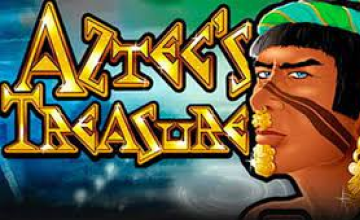Find the best online casinos for Italy
Italy has had a significant influence on how the world views gambling in general. While the laws that legalized online gambling in the infamous European state were published in 2011, the first casino, Ridotto, was established in Venice back in 1638. It also boasts one of the largest gambling revenues in Europe and abroad.
In Italy, gambling laws has been relatively permissive when you contrast it against the legislation of the rest of the European Countries.
In 2006, the country introduced legislation that permitted companies to offer a variety of sports betting services in retail locations and on the Internet. This happened at a time when a great number of the countries that are members of the European Union were focused on taking measures to restrict gambling in their territories.
Italy has made several changes to its legislation on the matter. The amendments enacted in 2011 permitted licenses for poker and casino games. As a result, several forms of gambling were offered to local citizens by a great number of licensed websites.
History of Italy’s Gambling Legislation
Italy is the fifth most populous country in Europe, consisting of twenty regions, five of which, including Sardinia, Sicily, Trentino-Alto Adige/Südtirol, Aosta Valley and Friuli-Venezia Giulia, have special statutes, granting them extended autonomy. “Home rule” allows them some degree of legislative, administrative and financial power, depending on their particular statute.
Current Italian legislation sets a differentiation between games of chance and games of skill. In addition, lotteries, sports betting, and other activities are regulated and legalized, while gambling, whether organized in a public place, an open-to-public place, or a private club, is considered illegal. The power to issue licenses and to regulate other gambling matters is given to the Amministrazione Autonoma dei Monopoli di Stato (AAMS) (Autonomous Administration of the State Monopolies).
The amendments made to the country’s legislation concerning gambling were initiated by the requirements made by the European Union. The latter demanded that Italy become more compliant with both licensing and regulation conditions. Subsequently, thousands of gaming licenses were issued to betting stations, land-based casinos and online gambling operators in the country.
The Italian gambling market was once only available to domestic operators until the European Commission intervened and forced the country to open doors to offshore jurisdictions. Punters in the region can enjoy products from all across the UK, US, Canada and several other areas. However, offshore operators must meet various requirements before obtaining a license from the regulatory bodies. This includes satisfying financial, technical, social and business requirements imposed by the governing agencies.
According to the 2011 decree, operators must pay a one-off fee of €300,000, in addition to satisfying all the requirements above. However, obtaining the Italian gambling license is more than just the conditions and fees. Interested operators must submit their applications to the AAMS within a 30-day window provided each year and have 90 days to fulfill requirements. AAMS will take three months to review applications and issue a license. After this, the operator has to finish an authorization process, from AAMS-certified accreditation bodies, for their gambling products.
Government officials have put their efforts into reducing the extent of gambling in the country. Lotteries and sports betting are classified as skill-based games and are currently permitted in different venues throughout Italy. The criminal legislation of the country, however, proclaims games of true gambling, which are not described as games of skill, as illegal.
Liberalization of online gambling
For a long time, the country was pushed into different situations that varied from the prohibition of gambling activities and services to the legalization of some of them. The main reason for this was the fact that the Italian Government was primarily focused on keeping the country’s citizens away from the negative aspects of the industry.
The true liberalization of the legislation rules related to online gambling started in 2006.
Several new laws were passed by the Italian Government. In 2006, the country’s authorities set a goal of creating a framework for legal gambling in Italy. The Autonomous Administration of the State Monopolies is the authority that is responsible for the administration and control over the framework, as well as for the process of licenses issuing. The AAMS is also the regulatory authority for all regions of the country.
In addition, the Italian regulator has an online gambling black list of more than 500 ISP-banned internet venues. Italian laws legalized primarily skill games played for real money and an online betting exchange.
In 2007 the Finance Act was passed in Italy in order to further secure online gambling. The Act’s goal was to regulate poker tournaments that took place in the country, The statute of video poker games remained intact, and they were left banned as they had been before.
Two years later, in April 2009, the Abruzzo Decree was passed as a legislature of fixed odds games of chance, as well as of additional web-based poker tournaments and ring games. In addition, the country canceled the requirement for the companies to be based in Italy, and the licensing fees were reduced. The decree officially introduced video lotteries and made online gambling, poker, roulette and casinos, legal.
Current standing of online gambling
So, what about the actual legality of gambling? The AAMS has issued over 160 active licenses to online gambling operators. Punters also have access to innumerable options offshore, as long as they meet the 2011 Comunitaria degree requirements. The Italian gambling market is highly regulated, and the government is strict on unlicensed ISPs. As such, you should only play on licensed platforms. The gambling regulation is also always facing improvements, opening the market for increased gambling activity, so you should keep tabs with the changing laws.
Online gambling in Italy has been legal since 2007, although AAMS started issuing licenses in 2010. Virtually all kinds of online gambling are legal, except for betting on blood sport. The Abruzzo decree of 2009 legalized online poker, sports betting and fixed odds games of chance, AKA casino games. The legislation also introduced regulation for virtual betting and video lottery terminals.
Italy’s online gambling market is the second-largest in Europe, explaining why the country has a significant impact on the gambling culture around the world. Italy has seen a 25% rise in gambling operator revenue over the past few years, and the government is keen to get a share of the profits. The regulations also encourage new operators’ entry both nationally and offshore, so you can expect the revenue to continue increasing.
The government previously taxed all gambling winnings above €500, which were subject to a 6% tax, set to increase to 10% in the coming years. Lottery winning taxes also move up to 8% from 6% on all gains above €500. Winning punters in Italy must declare their gambling income for tax purposes. However, if you are playing from abroad, you will end up paying little to no tax.














